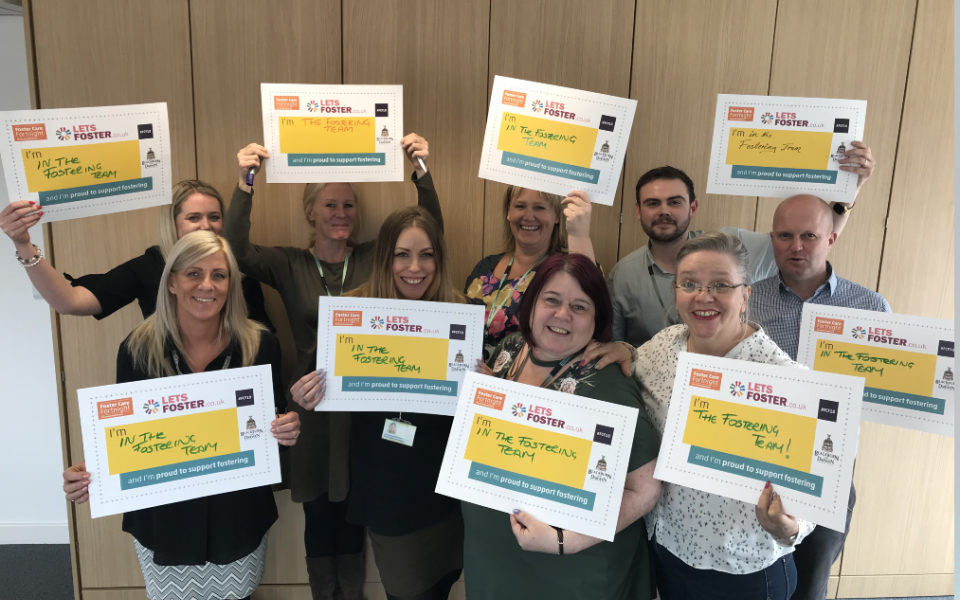
Published Monday 11 May 2020 at 9:55
Every day nearly 55,000 foster families across the UK are giving 65,000 fostered children and young people a loving, secure and stable home, and this commitment from foster families is ongoing during the coronavirus outbreak.
The UK’s leading fostering charity, The Fostering Network, is using this year’s Foster Care FortnightTM to raise awareness of the extraordinary dedication and work of foster carers at this time, while calling for more people to come forward to foster.
The charity’s campaign to raise the profile of foster carers and the vital role they play in society is the largest of its kind in the UK and runs from 11-24 May.
Foster carers accomplish incredible things every day, even in the face of a global crisis that has affected every one of us and impacted all aspects of our society. Despite the practical and emotional challenges that the coronavirus is bringing, foster carers continue to provide day-to-day support, love and stability to children and young people who can’t live with their birth families. They support children and young people’s education, health, and social wellbeing, and also help to maintain the children’s relationship with the people who are important to them but who they cannot currently see in person.
This year it is estimated 7220 more foster carers are needed across the UK to make sure fostered children can live with the right foster carer for them. Despite the coronavirus, this year is no different, so anyone who thinks they might have the skills and experience to become a foster carer is urged to contact Let’s Foster. For 2020 we are looking to find 20 new fostering households.
There are many different types of fostering, including long-term fostering until a child is 21.
Others may prefer the idea of shorter-term care, including short-breaks care, emergency care (where you might get a call in the middle of the night because of a home alone situation) or short-term care (where a single parent might need to go into hospital or someone might be waiting to be adopted).
You can also specialise, for example in neonatal care, children with disabilities or mother and baby placements.
Approved foster carers receive a generous allowance, full training package and ongoing support is provided with a strong foster carer network to share experiences with.
Councillor Maureen Bateson, Executive Member for Children’s Services, said:
We would like to thank our foster carers for all their hard work and dedication during this difficult time and would urge anyone thinking about fostering to step forward. There are a lot of myths around fostering – some people assume they need experience of parenting or caring for vulnerable children, have to be married or own their own home – none of which is true,” she added. “What’s important is not age, but the ability to provide love, stability and security, as well as having a strong motivation to foster.
There’s a need for all types of foster carers, particularly for teenagers and sibling groups.
Kevin Williams, chief executive of The Fostering Network, said:
Foster care transforms the lives of children and young people as well as those of the foster carers and their families. This has never been more important. Foster carers help children and young people flourish and fulfil their potential, as well as provide a vital service to our society. Because this happens mainly in the privacy of their own homes – especially at the moment – their contributions too often go unnoticed.
Foster Care Fortnight is a fantastic opportunity to celebrate the work of foster carers and their families as well as recognising how transformational foster care can be for the children and young people who need it.
To find out how you can start your fostering journey go to letsfoster.co.uk or speak to one of the team on 0800 328 6919.
